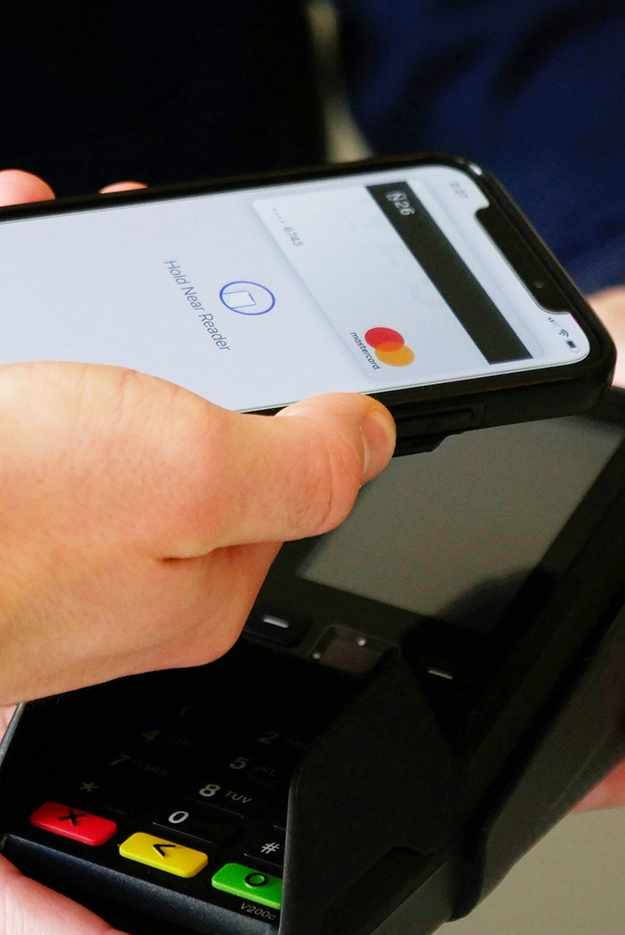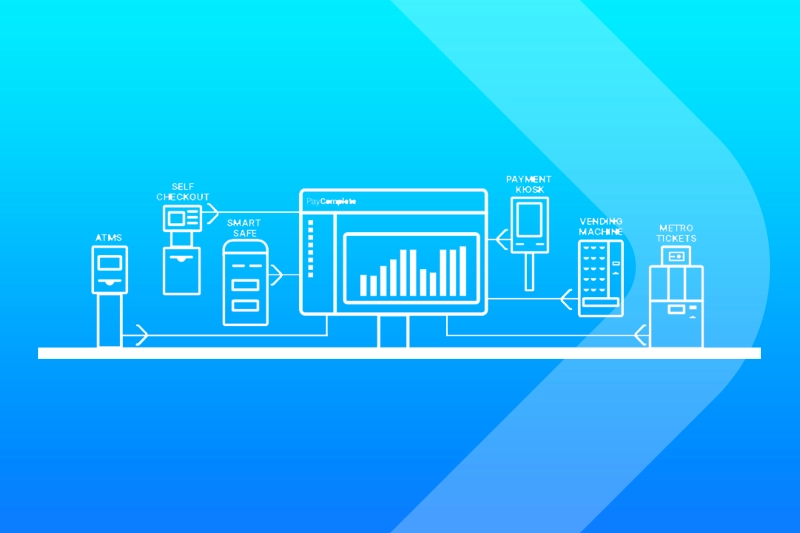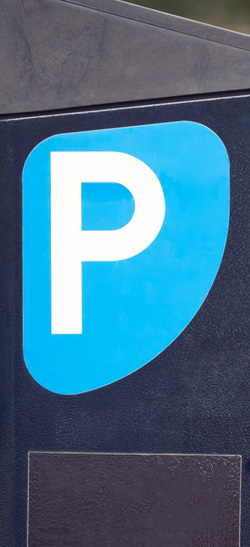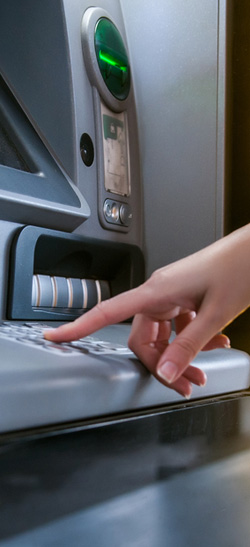In recent years, the use of cashless transactions has skyrocketed on a global scale – with the annual number of cashless transactions per person rising from 91 to 135 – making the concept of a cashless economy an ever apparent possibility.
A cashless society is an economic system in which all financial transactions are conducted through digital means rather than using physical money like banknotes and coins.
In such a society, many consumers rely on electronic forms of payment, such as credit and debit cards, mobile payments (such as Apple Pay and Google Pay), and online banking, to pay for goods and services.
This article explores why cashless payments are gaining momentum and whether a cashless society is the future or just a fad.
Why Have Cashless Payments Become So Prevalent?
Cashless payments have become prevalent in recent years due to an array of reasons.
The pandemic accelerated health concerns associated with handling cash, pushing consumers to use contactless cards and alternative payment methods.
The rise of eCommerce, also known as online shopping, requires customers to pay digitally – meaning as more people shopped online, more people turned to non-cash transactions.
Just as eCommerce provided a new convenience for shopping, the technology advancements of cashless payment systems payments technology also brought heightened convenience and speed. Take contactless payments as example which require a quick tap or scan compared to cash payments which require physical cash handling and working out change.
Digital technology has allowed for huge societal advancements. Smartphones allow cashless stores to accept digital payments efficiently through digital wallets and online banking.
Online banking has made personal finance and cash management safer and more efficient as mobile banking apps are available the tap of a finger instantly showing the funds available. Combined with budgeting features, saving options to manage personal finance, and additional security features (such as biometrics) drastically reduce the risk of fraud.
Advantages of a Cashless Society
As seen throughout the Covid-19 pandemic, cashless societies offer some benefits.
Convenience
Digital payments provide faster transactions. They are quick and easy, meaning less time and energy is spent on the transaction process.
Reduction in transaction times benefits both the business and consumer. Unlike physical currency, cashless payments require one tap or swipe, and the payment is complete. This has obvious benefits such as the reduction in queue times and the ability to serve more customers, which lead to improved customer service and increased revenue.
A cashless society is universal, enabling global access. Electronic payments allow for seamless transactions across borders with no hassle of currency exchange. This allows businesses to reach further afield to new consumers in multiple countries.
Travel is more convenient because individuals can travel lighter with no need to carry physical banknotes or worry about locating an ATM and the fees that come with using it. Instead, they can use digital payments across a number of holiday destinations.
Being cashless offers wider availability in various ways including not being confined to bank branches opening hours, the ability to online shop 24/7, a range of payment methods via integrated payment system, and access from multiple devices.
Cash poses a threat to the management of consumers personal finances. Digital only transactions leave a history, providing instant receipts to allow consumers to easily track their spending. On top of that, mobile banking apps provide budgeting features to help better manage finances.
Security
Electronic payments has paved the way for new and advanced security measures such as fraud detection and prevention as well as reducing the risk of theft and counterfeit money.
Measures such as instant account freezing, data encryption, real time monitoring, multi factor authentication and biometric verification such as facial recognition are recent innovations that create a safer financial environment by protecting against risks that cash payments bring.
New technological advancements like NFC (near field communication) technology, geolocation, and artificial intelligence payment systems will continue to strengthen security around cashless transactions making fraudulent activities increasingly challenging.
Physical cash is also a huge target for physical theft. In a cashless society, there would be no physical cash to steal thereby removing the target from businesses and individuals – inevitably reducing physical theft.
Transparency & Tracking
Cash transactions are essentially untraceable, whereas electronic transactions leave a transparent trail that can easily be tracked back to the source. These automatically get recorded within financial databases that can accessed by account holders, financial institutions, and if needed, regulatory authorities.
The UK Government has incentivised the shift to a cashless society for this very reason. With transparent and trackable finances, government policies can more easily spot illegal activities from money laundering and tax evasion to terrorist financing.
Businesses can also turn electronic transactions into financial records that can inform business strategy, customer behaviour, and any suspicious financial activity.
Innovation in Financial Services
The gradual shift to a cashless world means new avenues for innovation.
Within the last decade payment innovations include the integration of multiple devices, the rise of online marketplaces (like Amazon and Ebay), subscription plans, and more advanced authentication methods – which are all thanks to cashless payment systems.
Consumers expect faster, more secure, and multiple ways to make payments.
New digital payment innovations can help to promote financial inclusion as novel services and ideas encompass more people into the formal economy by meeting their specific wants and needs.
Reduced Costs
A cashless society leads to reduced costs which means economic growth. Digital currencies reduce costs for different groups, allowing money to towards other areas to foster economic stability.
Consumers who participate in the cashless economy benefit financially from no ATM fees, discounts and rewards, and some payment systems charge lower transaction fees.
Businesses would not have to deal with the substantial costs associated with cash handling. Instead, they acquire streamlined operations with simplified accounting and reconciliation, as well as faster transactions meaning more transactions.
Governments would have no need to invest costs in printing of physical money and the tracking of electronic finance means reduced costs in tax enforcement and fraud reconciliation.
Disadvantages of a Cashless Society
Although digital currency may seem like the forward, cash transactions offer many benefits for both customers and businesses.
Privacy Concerns
Some people have reservations about the loss anonymity with digital only transactions.
Cash transactions are anonymous, whilst digital transactions leave a detailed record of every single financial decision an individual makes.
This can make people feel as if they do not have control over their financial decisions or the right to privacy because every purchase can be tracked or analysed by financial institutions, businesses, and potentially even the government.
Data security is another concern people have. The shift to a cashless society means much of our personal data is stored digitally. This leaves data vulnerable to breaches, hacking, or misuse by various entities, potentially leading to financial fraud or identity theft.
The transparency and collection of payment and personal data means governments can oversee law enforcement with greater accuracy, but this useful tool also raises the question of whether governments might use data for the more ominous purpose of infringing public freedom.
Digital Exclusion
Going cashless may successfully sell to many businesses and consumers, but many could be negatively impacted.
Almost 1.4 billion people worldwide do not have access to banking services. Instead of bank accounts, they rely on using cash for their everyday transactions. Cashless spending excludes the unbanked from the mainstream economy, deepening wealth inequality.
Elderly people, low-income individuals, and those living in remote rural areas may struggle to transition to digital payment systems, as they may not have access to the necessary technology such as a strong internet connection or a smartphone.
Cash serves as a reliable backup when digital systems fail or technology cannot be accessed. A fully cashless society removes this safety net, leaving people without any physical money to fall back on during emergencies from system failures to purchasing essential goods.
Cybersecurity Risks
Digital payment systems will become the backbone of financial transactions in a cashless society and so will be a big target to cybercriminals.
Digital payment systems are a huge target for cybercrime. Cybercriminals could launch attacks like DDoS (Distributed Denial of Service) that overwhelm platforms with traffic, causing them to crash so cannot people complete transactions. This can lead to widespread financial disruption and loss of consumer trust.
Vast amounts of personal and financial data are stored digitally. Data breaches are a type of cyberattack that would expose sensitive information, such as bank account details and credit card numbers, leading to identity theft and financial fraud. This can have long-term impacts on individuals, including financial instability and emotional distress.
Malware can capture financial login details and take control of users’ devices to make unauthorised transactions. In a business sense, POS systems like those in retail stores can be captured by this and it scans credit card information during transactions of ordinary people.
In a cashless society, financial systems are and would continue to be highly interconnected. When everything is working as it should interconnectivity is great for quick and easy transactions, but if a cyberattack occurs in one part of the system it can have a cascading effect on other services, leading to a potential financial crisis.
Recovering from a cyberattack can be costly and time-consuming, sometimes stolen funds are not recovered. Frequent cybersecurity incidents can erode public trust in the idea of a cashless society and turn heads back to wanting to carry cash.
Financial institutions and payment providers must invest heavily in cybersecurity measures to comply with protective regulations, keeping up to date with new threats coinciding with digital payments.
Dependence on Technology
Whilst a cashless society does have its perks, all of this is dependent on digital technology and infrastructure.
When this goes wrong with system failures, cyberattacks, glitches and outages, a domino effect is created on the economy and society – causing significant inconvenience and financial losses for businesses and individuals.
Just take the biggest global IT outage to date (19th July 2024), which was said to have topped $1 billion in cost. It was a wakeup call to the world and the dangers of a cashless society. Cash is a resilient fallback if this type of event occurs as it is not reliant on a digital infrastructure.
Dependence on technology is not good for certain areas of society. Regions where electricity or internet connectivity is unreliable, would make a cashless system impractical. Natural disasters, power outages, or connectivity issues could leave people unable to access their money or make transactions.
Will the UK Ever Become a Cashless Society?
The UK seems to be moving closer to a cashless society, but it is a gradual shift that is not necessarily the future demand.
Whilst cashless payments may continue to become more prevalent, a fully cashless society may never be possible due to a multitude of factors.
Consumers enjoy having choice and preference, a fully cashless society eliminates that sense of choice.
Cash may seem appear to be out of fashion for a significant portion of society but for some their livelihood depends on it.
Does anyone have the right to take that livelihood away from others?
Bringing Digital Precision to Cash
A completely cashless society may never be fully realized, but the trend toward digital transactions is undeniable.
While cashless payments offer speed, security, and efficiency, challenges such as financial exclusion, privacy concerns, and cybersecurity risks remain. The key lies in striking a balance – embracing digital convenience while ensuring inclusivity and resilience.
At PayComplete, we bridge the gap between digital and physical currency through CashTech solutions that optimise cash handling, enhance security, and streamline financial operations.
Whether you’re a retailer, financial institution, or service provider, our technology ensures seamless transactions while keeping cash a viable part of the economy. Discover how PayComplete can future proof your business.

Related Posts








